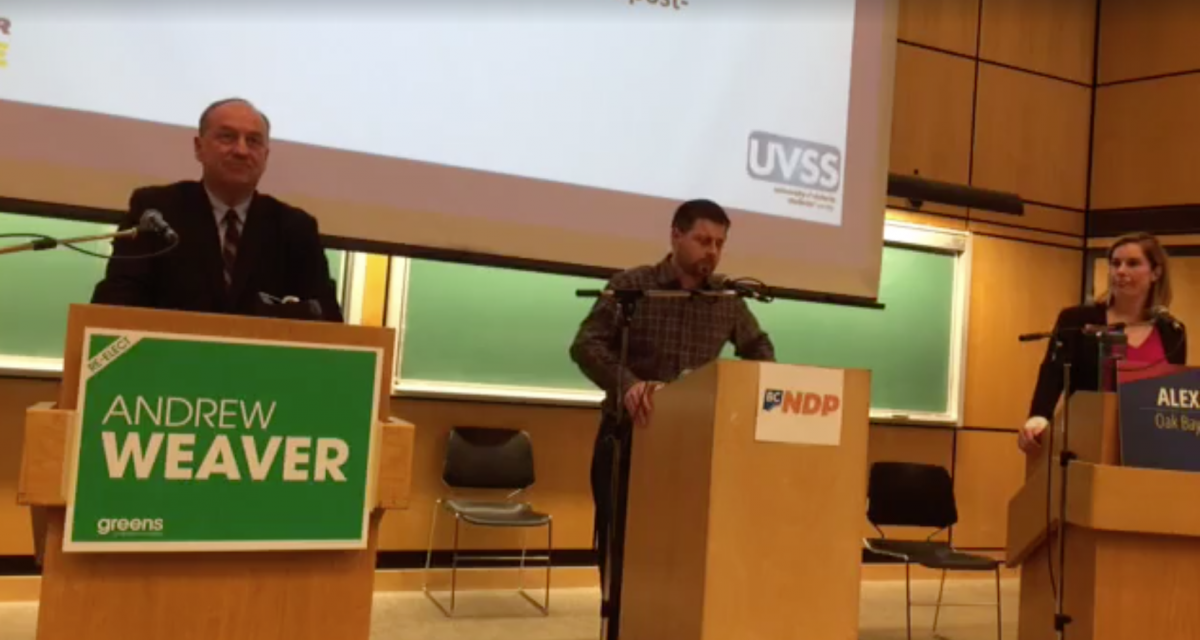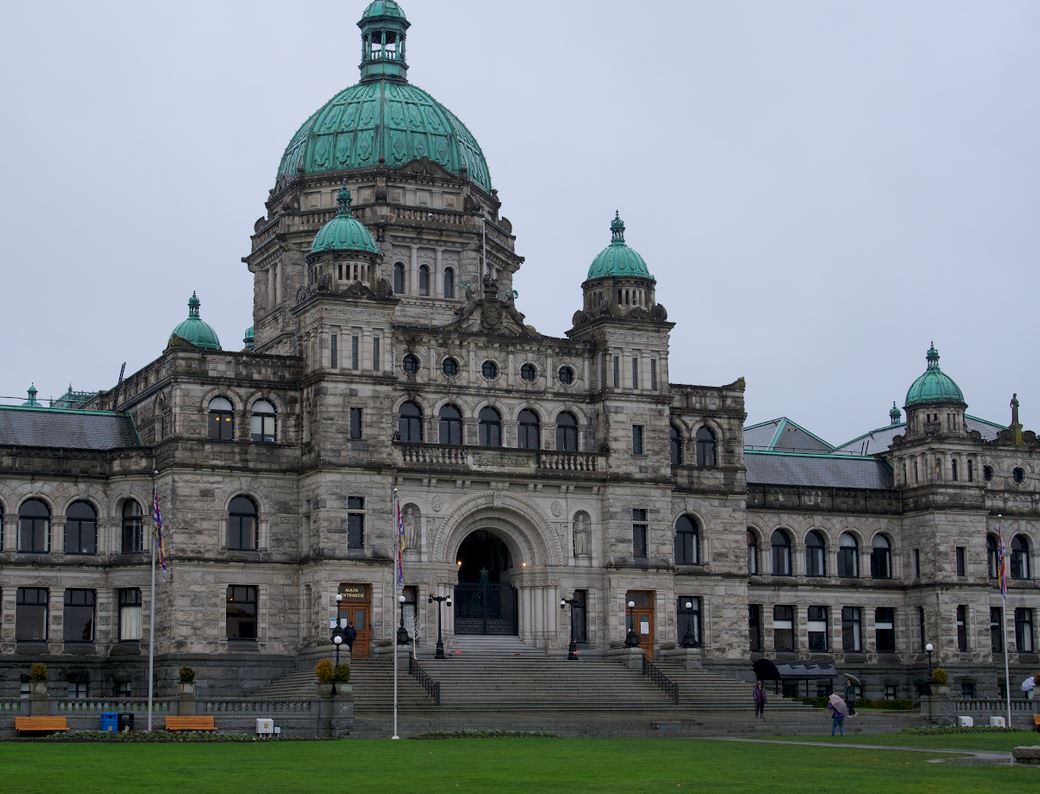
From left to right: Andrew Weaver, Bryan Casavant, and Alex Dutton square off during a candidates debate that took place last week. Screenshot via UVSS/Facebook
What began as an amicable discussion developed into a frantic, heated debate between Oak Bay-Gordon Head MLA Candidates at UVic last Wednesday, as those in attendance vied for student’s votes in the fast approaching provincial election.
Andrew Weaver, sitting MLA and current leader of the B.C. Green Party, took on Bryce Casavant, the newly minted B.C. NDP Candidate who made headlines as a B.C. conservation officer in 2015 for refusing to kill two bear cubs, and Alex Dutton, candidate for the B.C. Liberals. The B.C. Conservatives do not have a candidate running in the riding.
Moderated by Adam Stirling of CFAX Radio, the debate covered post-secondary education, the economy, and social services, before allowing a few audience questions. The mix of general and targeted questions was generated in collaboration between the UVSS and the Undergraduates of Political Science.
The contrast between candidates was evident from their opening statements. Casavant’s was short and lacked specifics; Dutton’s was more structured, advocating for the economic record of the B.C. Liberals and citing her sister’s story of benefitting from the party’s economic strategy; while Weaver played heavily upon his MLA experience and local connections, speaking of his family’s record of education and involvement at UVic.
The candidates’ views differed on most issues, with Dutton supporting the current government, Casavant promoting measured change, and Weaver advocating for more profound political change.
On the topic of post-secondary education, Dutton pointed to the B.C. Loan Forgiveness program and open source textbooks as successes for the Liberals, but Weaver shot back, remarking that the discussion should not be “how do we get [students] out of debt, but why they are in debt in the first place.”
During the same discussion, Casavant leaned on his own status as a tuition-paying doctoral candidate at Royal Roads University, but aside from reciting the NDP’s plan to “build a better B.C.,” his only concrete suggestion was to include academic journals in the open source textbook program.
Weaver and Dutton shared similar views on the topic of post-secondary sexualized violence policy, with Weaver asserting that his private member’s bill M-205 was the catalyst behind the government’s introduction and passing of last year’s Sexual Violence and Misconduct Policy Act. Dutton proposed “a further review of the nature of education provided in secondary schools around consent.”
It wasn’t until the topic of the economy was broached that the event came to a boil. Dutton’s description of the B.C. Jobs Plan as a part of a broader strategy to diversify the B.C. economy set Weaver up for a strong rebuttal, when he remarked that the plan had instead been a “colossal failure.” Weaver went on to tell the audience that “what you’re not being told is that those jobs [being created] are short term, they’re part time, and they’re low paying.”
The discussion around social services focused on housing and the fentanyl crisis, with Weaver and Casavant attributing much of the blame for both on funding cuts made by the B.C. Liberals.
The debate threatened to devolve into chaos during the candidates’ closing remarks, when Weaver accused Stirling, the moderator, of being biased towards Dutton. But the rules of the debate called for a 60-second rebuttal to be offered to the recipient of any specific attack. As it happened, Casavant and Weaver frequently singled out the Liberal party, and so Dutton received a majority of the 60-second allotments.
The next event taking place in the lead up to the election is the South Island Candidates Fair, which will take place Thursday, March 30, at 12:30–3:30 p.m. in the SUB. The provincial election is set for May 9.
A full video of the debate is available on the UVSS Facebook page. You can also listen to a recording at cfuvpodcasts.com.








